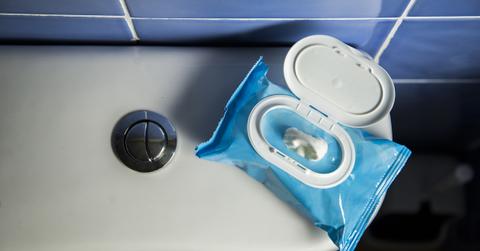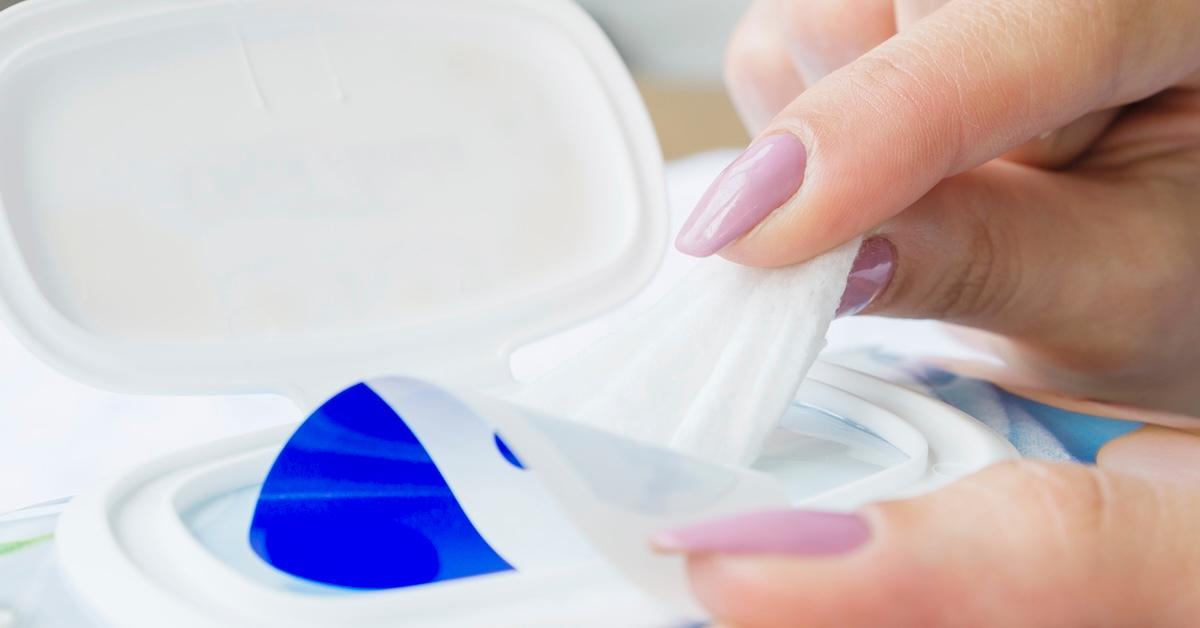These Certified Flushable Wet Wipes Are *Actually* Flushable
This brand was the first to earn the U.K.'s "Fine to Flush" certification for wet wipes.
Updated July 29 2024, 4:04 p.m. ET

When wet wipes say "flushable" on the package, they are usually — wait for it — not actually safe to flush. Because the term "flushable" isn't regulated, it can be used as freely and subjectively as something like "eco-friendly" or "clean."
However, the U.K. grew sick of the fatbergs that wet wipes cause in sewer systems (more on that in a moment), so in 2019, the country created an official “Fine to Flush” certification. (And that's fine as in OK, not fine as in a financial penalty.)
And pretty quickly, the first company to apply for the certification was approved — and five years later, Natracare's flushable wet wipes are still on the market, having expanded from the U.K. into the rest of Europe, as well as the U.S. and Canada.
However, after five years, the certification recently experienced a major change.
Keep reading to learn all about these wipes and the Fine to Flush certification.

The "Fine to Flush" certification was designed for truly flushable, plastic-free wipes.
Water UK announced the "Fine to Flush" symbol for wipes packaging in mid-January 2019. To qualify for use of the symbol, wipes have to be scientifically tested to ensure they do not contain plastic and that they will actually break down in the sewage system, Water Online explained.
Natracare, a U.K.-based organic and natural personal care brand, was the first to gain the certification, according to The Guardian. The brand's Safe to Flush Moist Tissues were quickly listed on Natracare's website, available only in the U.K.
"We’ve worked closely with Water UK to develop Industry Specifications for the UK’s first truly flushable tissue," Natracare stated. "Choose truly flushable moist toilet tissues guaranteed to break down safely after flushing, with an organic and natural formula which is kind to the environment."
The wipes are made from 100 percent paper tissue, unlike conventional wet wipes which typically include plastic or wood pulp, making them impossible to biodegrade in sewers. In addition to the Natracare wipes' Fine to Flush certification, they are also certified vegan by the Vegetarian Society as well as Made Safe Certified, meaning they are "made with safe ingredients not known or suspected to harm human health."
Most importantly, Natracare's wipes do not contribute to fatbergs.
What are fatbergs?
In case you're not familiar with fatbergs, they are floating, oily, nasty (that's an objective use of the word nasty) masses of garbage that have stuck together and are clogging sewer systems, as explained by Slate. The main component of these fatbergs? That would be wet wipes. (Another common fatberg ingredient is bacon grease, which people pour down their sinks, Slate added.) London has had some particularly bad fatbergs in its sewer systems.
For example, as NPR reported in 2017, a 130-ton "rock-solid" fatberg was discovered in London's sewer system — that comes out to 260,000 pounds, nearly the weight of a blue whale, "It's a total monster and taking a lot of manpower and machinery to remove as it's set hard," Matt Rimmer, head of waste networks for Thames Water, told NPR at the time. Not only are fatbergs a living nightmare for staff who have to remove them from waterways, but the process is also quite costly for municipalities.
So, if you enjoy treating your tush to a baby wipe after going No. 2, here are a few simple things you can do to make sure you're not contributing to your city's horrifying fatbergs. For one thing, stop putting wipes in the toilet, even if they say flushable (unless you have access to plastic-free wipes with the Fine to Flush certification).
If you must use wet wipes that can't be flushed, throw them in the trash instead of in the toilet. It may give you the heebie-jeebies to have a poopy wet wipe in your trash can, but flushing a wet wipe made of plastic is basically just as bad as flushing a straight-up plastic bag. And for those who are ready to for a more sustainable alternative, consider investing in a bidet attachment for your toilet — it will be a total game changer.
All that said, the Fine to Flush certification is no more.
In March 2024, Water UK stopped issuing the Fine to Flush certification.
According to Water UK, this was due to customer confusion surrounding various flushable labels on wet wipes. Now, Water UK is promoting a different campaign called Bin the Wipe, which has support from the U.K. government; the organization is also working on a campaign to ban plastic-based wet wipes.
What wet wipes are flushable?
In addition to Natracare's Safe to Flush Moist Tissues, a few other brands making wipes with Water UK's Fine to Flush certification include Mum & You, Pura, and Wype. That said, now that the certification is no longer being issued, make sure to do your research before actually attempting to flush any wet wipes, since most still cannot be flushed. If you're unsure, bin it.
This article, originally published on Feb. 26, 2019, has been updated.